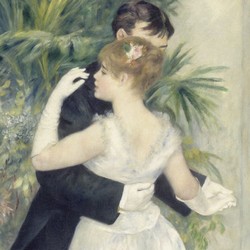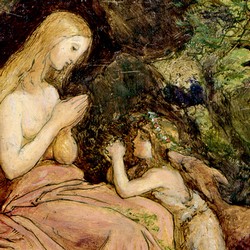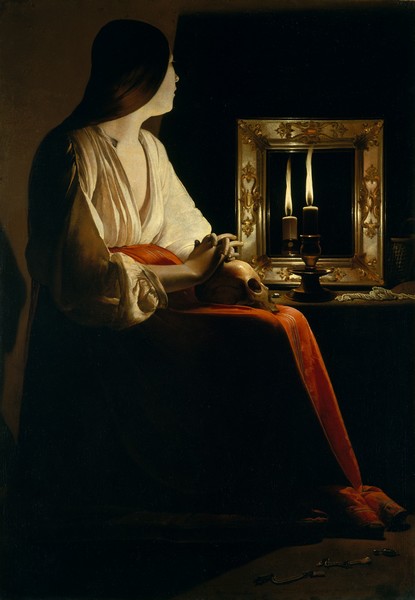
Curiously enough, the text is part of a play, and is a song sung by two characters, a man and a woman. The work in question is Der Tod Friedrich der Streitbare [The death of Frederick the Quarrelsome], which focuses on the episode of the death of Frederick II, Duke of Austria and Styria. As his nickname indicates, the duke loved launching wars with his neighbours, and he died in 1246 at the age of thirty-five at the Battle of the Leitha River fighting the Hungarians. Besides the opportunity to set a play in the Middle Ages, which we already know Romantic poets liked very much, I didn't find Frederick II was remembered for any special circumstance or deserved such prominence in a play. Unless the fact he didn't have any children and was the last ruler of the house of Babenberg, a dynasty to which Matthäus von Collin wanted to dedicate a cycle. But Collin certainly knew much better than me the history of the Holy Roman Empire.
The author romantized his character, i.e., he adorned it with traits according to the literary tastes of his time; he himself explains in the prologue that we should not expect historical veracity but a historical style. That's how in the second scene of the fourth act we find Frederick melancholically remembering the happy past times, peacetime. Then he hears a voice of a man singing about love; the duke is surprised to hear these blessed sounds and is even more surprised when he immediately hears a woman singing, also unknown; the duke realizes that the lament of the woman and his are quite the same. Eventually, the two voices join and sing together the same verses that the man had first sung. Then enters the scene Agnes of Merania, the Duke's wife, and Frederick feels comforted in his sadness.
These songs, without Frederick's comments, are reproduced by Schubert in his Lied Licht und Liebe. We hear a man singing the first stanza, with a sweet melody full of lyricism; the second, longer stanza is sung by a woman and has a different character: it is animated, tense, and almost like a recitative. Both voices join to sing the verses of the male voice, with a varied melody and the insistent repetition of the first words, Liebe ist ein süsses Licht (Love is a sweet light). It is a beautiful song that we're listening performed by by Anke Vondung, Konrad Jarnot and Christoph Berner.
Matthäus von Collin didn't go down in history as a great poet, but Schubert made a good decision when he chose five of his poems, which became five fine and different Lieder. Among them there are at least two masterpieces, Der Zwerg and Nacht und Träume. A third song, Herrn Josef Spaun, Assessor in Linz, is a fun farce; today we're listening to Licht und Liebe there will be just one left, Wehmut, which I jotted down in my notebook for next season, to pay special attention to the poet.
For the moment, tell me what do you think about Licht und Liebe. Do you know what I find interesting in these verses? That in a romantic context, in which love is usually linked to the night, darkness and mystery, it is said that love is light. I find this idea more suitable to the Enlightenment.
Liebe ist ein süsses Licht.
Wie die Erde strebt zur Sonne,
Und zu jenen hellen Sternen
In den weiten blauen Fernen,
Strebt das Herz nach Liebeswonne:
Denn sie ist ein süsses Licht.
Sieh! wie hoch in stiller Feier
Droben helle Sterne funkeln:
Von der Erde fliehn die dunkeln
Schwermutsvollen trüben Schleier.
Wehe mir, wie so trübe
Fühl ich tief mich im Gemüte,
Das in Freuden sonst erblühte,
Nun vereinsamt, ohne Liebe.


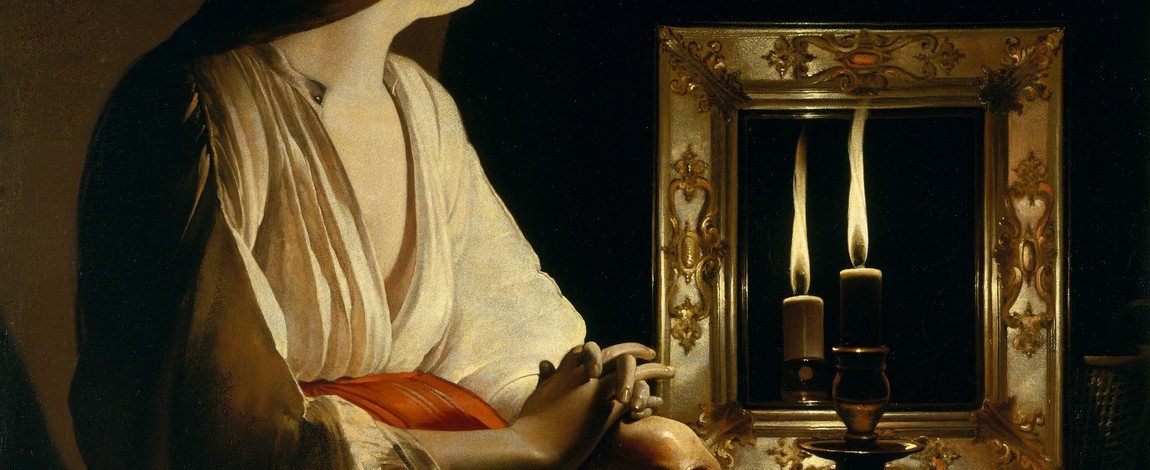
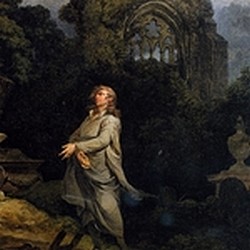 In 1848 and...
In 1848 and...